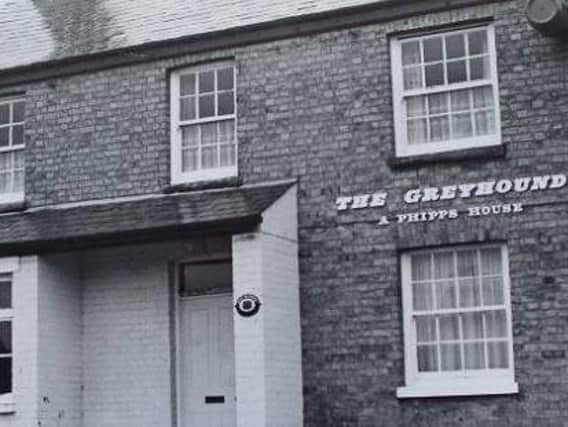Former Advertiser reporter remembers the night almost all of Churchover was arrested for going to the pub


If there’s a single thing that seems to personify one’s advancing years then it’s the growing belief that things were better ‘in our day’.
There was less crime, people were more respectful of each other, the sun always shone in summer and the winters were cold.
But like all mythology, this is only partly true.
Advertisement
Hide AdAdvertisement
Hide AdTake your local policeman for example. When I was a boy, there was an officer responsible for my home village of Churchover.
Fortunately for outlaws such as me and my mates, his arrival would be heralded by the put-put-put of his motorcycle, a sound which warned us to high-tail it out of town, just like Western desperadoes in the movies.
Our ‘crimes’ might be cycling the wrong way around the village green or – at the very worst – scrumping apples, which to us wasn’t theft, except of course, that’s exactly what it was.
My earliest memory of the local bobby was PC Dettmer, who was eventually succeeded by PC Kilding.
Advertisement
Hide AdAdvertisement
Hide AdThe former struck the fear of God into us, while the latter was a kindly red-faced individual who never bothered you without good reason.
But one day, my village was hit by the greatest scandal in its history, possibly even bigger than the trauma of the Norman Conquest or the shock of the Reformation.
What am I talking about? The Saturday night when almost the entire adult population of Churchover was hauled before Rugby Magistrates Court for drinking after hours, that’s what.
Back in the days when pub opening times were subject to the same restrictions that had been in force since the First World War, landlords had to ensure everyone had left before 11pm.
Advertisement
Hide AdAdvertisement
Hide AdAround 10.30, the landlord might ring a bell and shout ‘Time ladies and gentlemen please!” By 10.40, any lingerers might then be asked “Haven’t you lot got homes to go to?” and that would usually do the job.
The hangers-on would drain the last drops from their glasses and, hopefully, be on their merry way.
But there was one way to get round the opening laws and this was for the landlord to declare that the regulars were all his private guests.
There then followed what was – and still is –known as a ‘lock-in’.
Advertisement
Hide AdAdvertisement
Hide AdThis had been going on for years in villages around the Rugby area. In the main, the local coppers had turned a blind eye, sometimes even attending such gatherings themselves.
But not so on that fateful night in 1966. For around midnight, a large posse of policemen raided The Greyhound in Churchover… and arrested virtually the whole village.
I was a reporter on the Rugby Advertiser at the time, and when my boss Len Archer picked up the news at the Monday morning police call, my
heart sank.
At that stage of my career, I had started to cover the weekly court hearing, which in those days took place at the police station, then situated at the bottom of Railway Terrace.
Advertisement
Hide AdAdvertisement
Hide AdHow could I show my face again in Churchover after I’d reported in the pages of the Rugby Advertiser the downfall and shame of the villagers and told of how they had caroused into the early hours?
A week or so later, the full extent of the scandal became plain to see. One of my jobs was the get the court list from the Magistrates Clerk’s office in Albert Street.
The clerk was a chap called Dai Davies, and he caught me looking through the individual charges and the statements of the accused.
A typical charge might have read ‘John Frederick Blankton, of Blank Street, Churchover, near Rugby, is charged that on the so-and-so night of so-and-so month he was in possession of a pint of beer, that beverage being intended for consumption contrary to the licensing regulations etc’ or words to that effect.
Advertisement
Hide AdAdvertisement
Hide AdIn fact, I became so engrossed with reading this catalogue of shame that Dai Davies warned me that if I continued to look at documents that were none of my business, then I would be banned in future from collecting the court list.
And so, the day of reckoning arrived. Luckily, I was excused court duty that day, but later learnt that the waiting room at the court had been packed with defendants.
One by one, they had been hauled before the Beak and fined.
Apparently, some had taken their punishment with meekness and remorse, while a few were defiant to the last, insisting they had done nothing wrong, and that they had been private guests of the landlord all along.
For several years, the aftermath of the affair lingered on in Churchover. Some people felt that there had been an informer in their midst, and at least one individual was accused of treachery.
Advertisement
Hide AdAdvertisement
Hide AdBut whatever - who or what - had brought about the betrayal, relations with the village bobby were never the same again.
From then on, there was a lack of trust between villagers and the man in blue… and all because of a technical breaking of the law, which in reality, had been a victimless crime and therefore not worth all the upset.
John Phillpott’s new book Go and Make the Tea, Boy! is out now and available to buy at www.brewinbooks.com/go_and_make_the_tea_boy